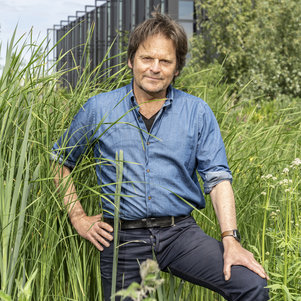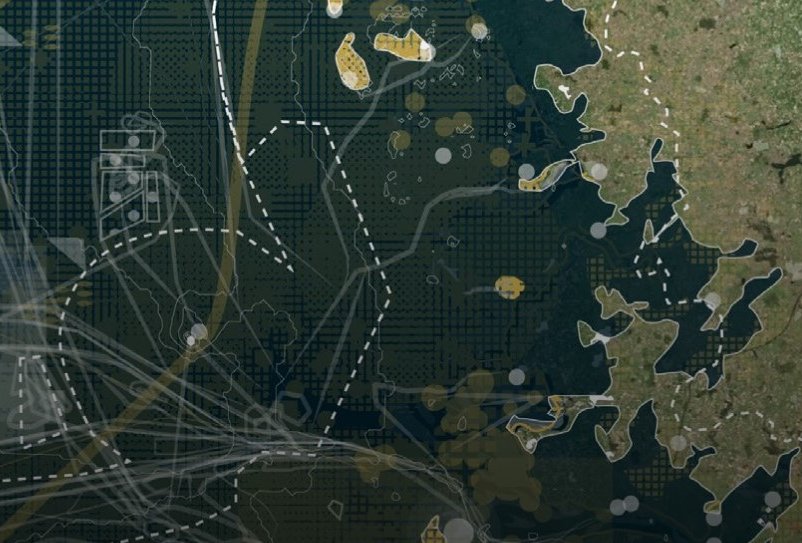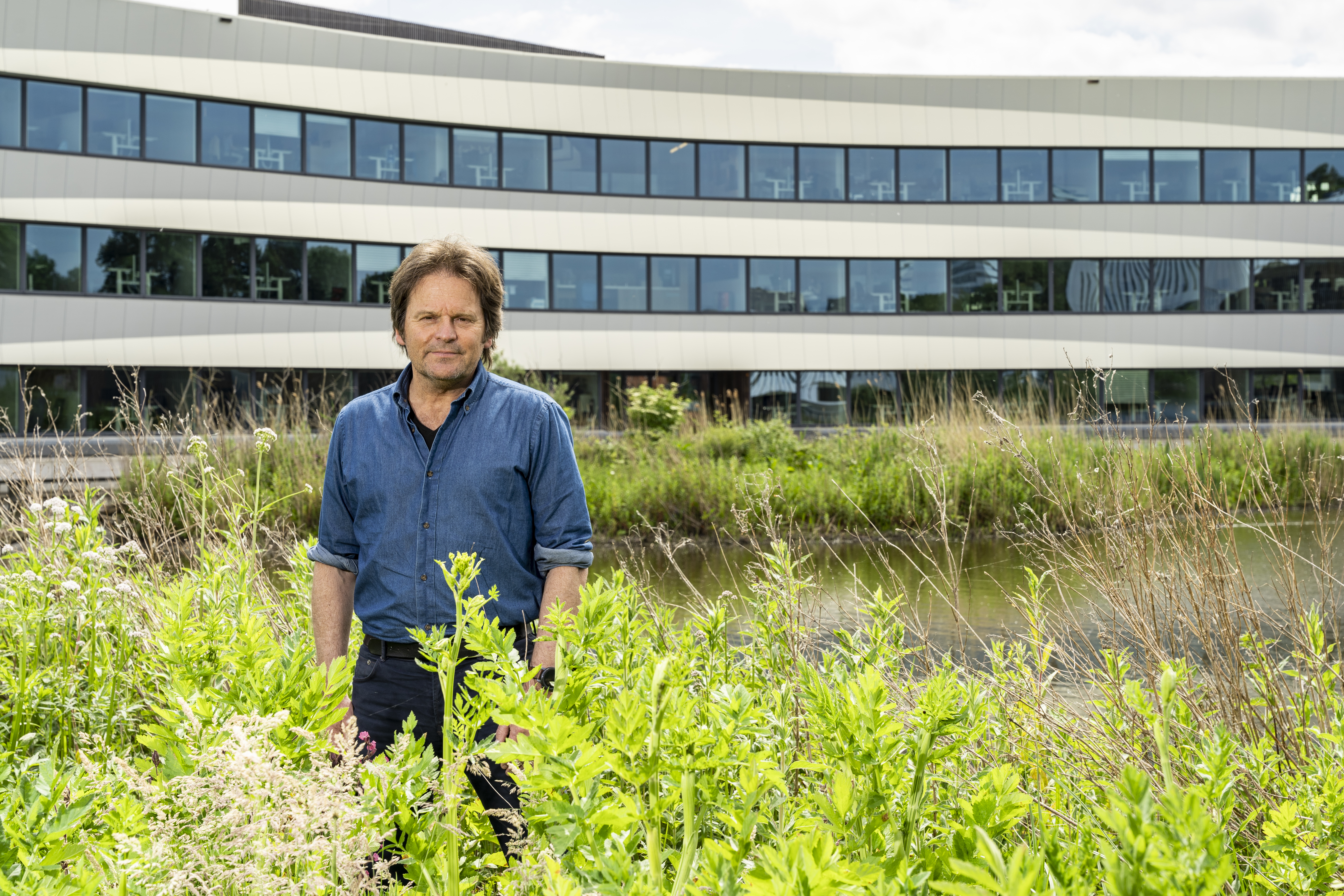Scenarios for safe and habitable deltas
Whereas, over the years, we have learned to tame the Dutch delta, delta regions in countries abroad are often still unrestrained systems, making them extremely vulnerable to flooding. And climate change is exacerbating the situation. Chris Zevenbergen and his research team have initiated the project ‘Redesigning Deltas’ to help countries draw up long-term visions for safe and habitable deltas.
Delta regions are constantly susceptible to flooding. As a result of climate change, such as rising sea levels and increasing rainfall, these areas are only becoming more vulnerable, says Chris Zevenbergen, professor of Delta Urbanism at TU Delft. “The risk of flooding is very high, certainly in the delta regions in Asiatic countries, such as Bangladesh, Vietnam and China, and in various African countries. They have ferocious water systems that have intense dynamics and enormous natural power. In the Netherlands, we have tamed our delta with natural and technological interventions and flooding is much less likely.”
Prerequisites for economic development
The infrastructure needed to guarantee water safety is largely lacking in delta regions in distant countries, says Zevenbergen. “This primarily forms a threat to residents and, more specifically, to the poorer sections of the population. Because delta regions are becoming increasingly urbanised, the social impact of flooding is catastrophic. Water safety is, furthermore, a prerequisite for economic growth. Flooding can damage vital infrastructure and bring factories to a standstill. This vulnerability has a major impact on the readiness of third parties to invest in the economy.”

Prof. Chris Zevenbergen
More proactive
As head of the Flood Resilience group in the Coastal and Urban Risk and Resilience Department at IHE Delft, Zevenbergen is searching for ways to design safe delta regions for the future. According to him, one of the problems is that many countries in vulnerable delta regions have no long-term strategies. “This means that the gap between what is needed and what is currently being implemented is simply getting bigger. To achieve safe and habitable deltas, you have to anticipate problems rather than respond to them in retrospect. There is no capacity in these countries to sketch good scenarios, particularly in the spatial sense. As a researcher, I hope to be able to contribute to a better perspective.”
Dynamic and adaptive delta management
According to Zevenbergen, the difficult thing about rapidly changing delta regions is that water safety measures are only effective for a limited period. “Adapting existing infrastructure to cope with changing circumstances is a continuous, complex task. You have to walk a tightrope between robust, often drastic, interventions on the one hand and more flexible, softer interventions on the other. The first category has a long lead time and requires large investments up front. The second entails gradual upscaling, faster realisation and lower initial costs. Although there is growing support for this latter category, there is also hesitation. We still have little experience with management and maintenance costs or how such interventions behave in the long term.”
Redesigning Deltas
Since last year, Zevenbergen has been Head of Redesigning Deltas, an ambitious programme in which scientists from various disciplines, such as ecologists, engineers, designers and sociologists, work on the future design of delta regions. Spatial design and design related research are central to the programme. Zevenbergen: “Design related research begins with collecting knowledge on the physical system and joint fact finding: how do the different stakeholders see current challenges and those of the future? Based on future scenarios, paths are identified, including the critical moments in time at which decisions must be made. The great thing about spatial design related research is that it provides the perfect opportunity to combine issues concerning water safety with other challenges, such as health, habitability and the energy transition.”
Engaging international expertise
A big congress in the context of Redesigning Deltas is being organised from 16-18 June. Researchers and policy makers from eight delta regions all over the world will be attending, says Zevenbergen. “One of the objectives of this congress is to promote the exchange of knowledge between the delta regions and specifically that of long-term planning. Peer learning – sharing knowledge and learning from countries with similar challenges ¬– is increasingly important in accelerating knowledge development. Our ambition is to continue working together with these delta regions in the programme after the congress.”
Money simply does not find its way to projects
Among other things, vulnerable delta regions have a great need for trained personnel, to write good funding applications, or bankable proposals, for example. “At the moment, there is more money available for infrastructural projects in developing countries than ever before. Only that money seldom finds its way to its destination. Financers of large projects, such as the World Bank and the Asian Development Bank, impose conditions on investments. They may, for example, require that projects are sustainable and take future uncertainties into account. But because many countries are primarily concerned about the short term, their proposals do not qualify and much of the funding goes unused.”
Need for multidisciplinary collaboration
According to Zevenbergen, the fact that researchers from several universities and institutes in the Redesigning Deltas programme have emphatically expressed the wish for a multidisciplinary collaboration shows a change in paradigm. He sees a growing realisation among scientists that we can only arrive at solutions if we look at what is happening in other disciplines. “The current challenges are extremely complex, and urgent too, and therefore require a different approach from the scientific world: an approach in which we do not focus on publishing as many articles as possible or the acquisition of funds but in which we work together to help solve these significant issues.”
More action perspective
Zevenbergen feels, moreover, that it is important to provide an action perspective. “Reports, like those of the Intergovernmental Panel on Climate Change (IPCC), mainly show how badly things are going for our planet. This frequently has a paralysing effect, which results in relatively little actually happening. By sketching perspectives, as we do with spatial design related research, we show how problems can be tackled. This encourages people to do something. Of course, there are a lot of challenges and uncertainties and there is a huge amount of work to do. But it would be great if the next IPCC report were to focus more on the steps we should be taking and galvanise us into action. Hopefully Redesigning Deltas will help.”


